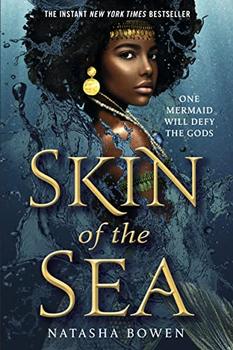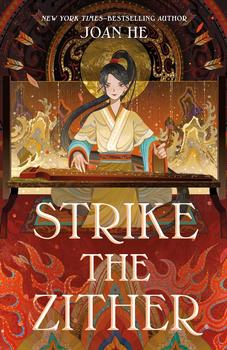Summary | Excerpt | Reviews | Beyond the book | Read-Alikes | Genres & Themes | Author Bio

Simidele, called Simi, is having a hard time adjusting to her new life as one of seven Mami Wata. Pulled from the ocean and saved from drowning by the deity Yemoja, her duty is to follow the slave ships as they leave the Western African coast and collect and bless the souls of the slavers' victims who die at sea so they can return home again. But memories of her old life, before she was given Yemoja's mermaid form, keep her from fully embracing her new role. One day she finds someone who is not yet dead in the water, and instead of waiting for his soul to depart, Simi saves the young man. But this deed, committed out of anger that the Mami Wata do not do more to stop the slave ships, is not without consequences. She does not realize that by saving Kola, she has risked the safety of not only the rest of the Mami Wata but of Yemoja as well. To put things right, she must journey to Kola's village to make amends to the supreme creator Olodumare. But Simi and Kola are pursued by the trickster Esu, and the journey will challenge her in ways she could not begin to understand.
Skin of the Sea is Natasha Bowen's debut novel, and, according to the author's note, it weaves together her childhood love of Hans Christian Andersen's "The Little Mermaid" and the undersea world, with the recognition that representation matters in fantasy storytelling. She writes that she learned about Mami Wata, a pantheon of water spirits, and Yemoja, a Yoruba deity who is prominent in the Ifá religion, when researching Black mermaids, and so the novel was born. Bowen incorporates these concepts, the history of the slave trade in the 1400s, and West African mythology and history to root a fantasy story in which readers might be intrigued enough to learn more about cultures that are underrepresented in the genre.
The novel is intriguing. Simi's perspective is immersive and driven by emotion as she slowly remembers pieces of her life, including her own experience with captivity. However, Bowen does not focus only on the one historical experience. In her author's note she writes that this novel allowed her "to tell a story of Black characters from ancient empires, showcasing their power and magnificence." She achieves her goal, neither skirting nor dwelling on the horrors of slavery, and also providing a rich and layered look at West African life from that period of time beyond the narrative of captivity, something seen too little in historically-rooted fantasies.
In addition to the beautiful texture of the storytelling, readers who know Andersen's "The Little Mermaid" will enjoy narrative call-backs and parallels, such as Simi's saving of a "prince" and the threat of being "turned into foam upon the sea" that she has to contend with as she walks between the human world on land and her new, underwater world. Simidele's journey to remember who she was and also save the world she has become part of is a fascinating reinvention of a beloved fairy tale, set in a beautiful, richly crafted fantasyscape with engaging and relatable characters.
Skin of the Sea expands the world of the fairy tale to new readers, providing a different type of mermaid story than those that dominate the mainstream. It also provides an introduction to West African mythology and culture and a dark period of global history. Bowen writes in an approachable, balanced and intriguing way that decenters the Western gaze on the topic of the slave trade in the 1400s, while also refusing to allow slavery to be the prevailing narrative of the time and place.
![]() This review was originally published in The BookBrowse Review in February 2022, and has been updated for the
August 2022 edition.
Click here to go to this issue.
This review was originally published in The BookBrowse Review in February 2022, and has been updated for the
August 2022 edition.
Click here to go to this issue.

If you liked Skin of the Sea, try these:

by O.O. Sangoyomi
Published 2024
Set in a wonderfully reimagined 15th century West Africa, Masquerade is a dazzling, lyrical tale exploring the true cost of one woman's fight for freedom and self-discovery, and the lengths she'll go to secure her future.

by Joan He
Published 2024
A dazzling new fantasy from New York Times and Indie bestselling author Joan He, Strike the Zither is a powerful, inventive, and sweeping fantasy that reimagines the Chinese classic tale of the Three Kingdoms.
There are two kinds of light - the glow that illuminates, and the glare that obscures.
Click Here to find out who said this, as well as discovering other famous literary quotes!
Your guide toexceptional books
BookBrowse seeks out and recommends the best in contemporary fiction and nonfiction—books that not only engage and entertain but also deepen our understanding of ourselves and the world around us.